The six pou of Mata Ārahi Manomano drive the questions we have used to profile Māori & Pacific role models, like James, in the Service sector.
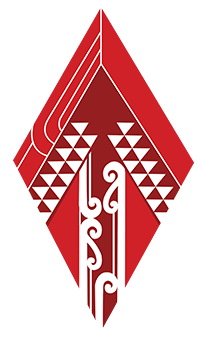
|
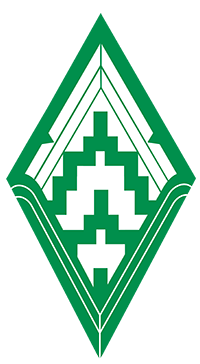
|
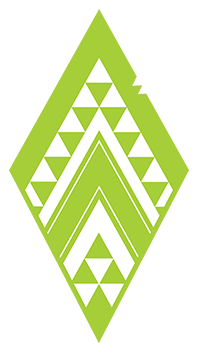
|
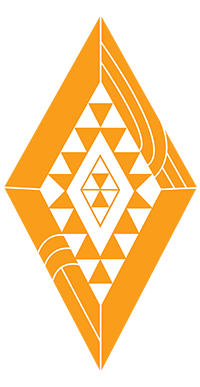
|
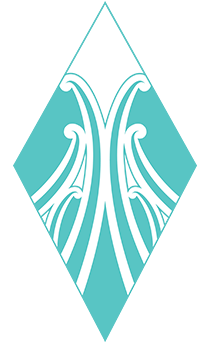
|
|

Representing the levels and forms of aroha that can be found throughout our lives across our many communities. We acknowledge the wide range of obstacles and the journey it takes to overcoming everything that stands in our way to expressing aroha within.
He uri no Waikato, Tuwharetoa, Raukawa tenei te mihi ana kia koe, kia koutou.
I did a SWOT of myself in 2010. If we we’re talking about strengths, I guess it was self-belief – the ability to dig deep and give it a go. One of those things, if I’m being honest, was ‘how do I make money?’
So when I did that SWOT back in 2010, it was understanding my actual eagerness to learn. One, diving deep into what my job was at the time, which was town planning. I’m still a town planner, but I’ve evolved since then and in terms of business, how do I leverage my current skill set and turn it into a consultancy service?
I always put family first. My first decision was always about my whānau’s needs and I saw that as a weakness back then.
I can remember how my wife Amy and I started weaving it into who we are as a business rather than seeing it as a weakness. We feel like anybody who’s connected to us and has a similar mindset in this journey of making money, that we don’t lose our kids or our family or our connections.

Seeking guidance from our kaitiaki Hiwa-i-te-rangi, we take a journey through our different aspirations, goals and dreams. This tohu acknowledges hard work, wisdom, the reach of ones goals and the desire that comes from this mahi.
I started getting an inkling I was going to work for myself when I wasn’t a good employee. It wasn’t that I was naughty, it was that I always think there’s an alternative solution or pathway available to solve a problem, rather than a standard, methodical approach.
If I wanted informed decisions, especially an inclusion of the Māori voice and our whakapapa, whanaungatanga within our Taiao, I had to create my own systems so that we can challenge that greater system. My aspirations have grown and I make sure that when we talk about the use of our Taiao, our local resources and improving the system so the legislation, politicians, etc, can recognise our places as nai Maori, as Iwi, Te Tiriti and our grassroots around our whakapapa whanaungatanga around the taeao.
It’s that holistic part of being in a system that manages the resources and our environment, and then ourselves as entrepreneurs and giving it a go in a korowai of whakaaro Māori. The aspiration is…how do we grow collectively in these spaces?

With adventure comes challenges as well as obstacles to overcome. We stand proud as we overcome these obstacles. This tohu draws inspiration from the Niho Taniwha and Aramoana patterns. We acknowledge reaching our destination and preparing ourselves for the many new adventures ahead.
It’s a learn by participation I guess, a lot of trying and testing things. It’s important to have a good foundation through books and other people’s learnings. But the real growth of anything is actually applying it and that journey is definitely wīwī wāwā.
About five years ago, we were looking for some office space in Ngaruawahia for our own purposes to run our consultancy. The owner was trying to sell three blocks and we were only looking at one of them. But when talking to him and his wife to understand who they were as people, they started sharing their dream. From there, it just blossomed. We ended up buying all three properties, ha-ha.
Over the last five years we’ve been creating spaces for local businesses and consultancies, sole traders here in Ngaruawahia to express their themselves as entrepreneurs and businesses. We have eateries, brokerages, real estate agents, lawyers, and a health space. Collectively, I think just over 14 businesses operating here in Durham Precinct. I think 29 employed staff members collectively.
How we worked together really showed itself when we went through lockdowns. As well as now, when we’re seeing that whānau and communities have been a bit more diligent with their household income, which is fair enough cause things are pretty tight now. How do we still keep an eye on each other, look after each other, manaaki through that time?

These patterns represent bravery and being strong in the face of adversity. We strive to be persistent and positively challenge anything that threatens to alter, restrict, and put a barrier in the way of our desired pathway.
One of them was that I’m not a good employee, so I realised that I’m actually a boss. I’m not trying to say I’m not a servant or subservient to anybody else, just more of in that moment I couldn’t be me and how I wish to not lose myself in my job and be that person that has no humour.
That was pretty much the start of me looking inwards and outwards. Going to the library and reading books, self-discipline, learning about my profession, learning about business. It was a good two to three years of learning all that stuff and what comes with being a consultant, or sole trader or business owner. That moment set me on the pursuit of who I am today.
Another part over the years is learning how to challenge those types of people and in that moment realising I can be me in different spaces and also challenge people but not make them feel like I’ve just given them a dressing down, so that we can talk.

Here we are drawing inspiration from the Pūhoro pattern. The pūhoro is used here to represent the strength, speed and agility needed to move forward and accomplish ones goals.
That discipline in your free time to continue your personal growth. I’d finish work, come home and then I’ll put my nose into a book. I wasn’t going to a course. I wasn’t doing another tohu. There’s a library there that’s free.
There was something in me that said, ‘go read a book’ rather than, pick up the phone and have a look through TikTok or scroll through social media. There was an urgency in me, I’m learning. I’m loving the spectrum of books I was reading – it was everything and anything to help me grow.
Find a way, get yourself motivated to do something that’s not habitual. If you’re a reader… cool, then that’s the habit. Reinforce that. Try to eliminate those spaces of distractions on social media, when you realise you’ve lost three hours and the time to read.
The other one, I do believe in self-care and right now I’m trying to get back on that journey. I lost it for a bit during Covid. My wife and I are trying to unstitch ourselves from that practice of being 24/7. It’s about looking after yourself, doing yourself checks – how am I doing?
The other part too, I try to teach my kids… being able to dump the bad part of your days. How do you dump that in that moment, to be with whānau, to be yourself so it doesn’t take over and create the energy in the room, when it’s not yours.
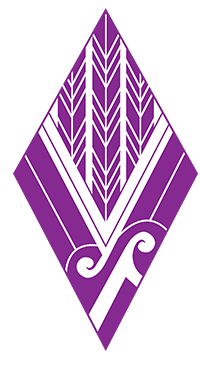
Success, best mentioned in the whakatauki “Tūwhitia te hopo, mairangatia te angitū!” Feel the fear and do it anyway!
I encourage playing team sports, encourage sports, cause losing is just as much as part of winning. So going into a professional business pursuit, you recognise that you’re not always going to be successful every time. So that’s the mindset – and exploring something new and testing something new and giving it a go.
With the consultancy side of things, I gave it a go the first time and it didn’t really come off. And then the second time, it got better and then the third time I was finding myself around where it fits and where our professional development is, then adding to my service – then another thing and another thing. Whetu Consulting is in its third or fourth phase, we are constantly tweaking and changing tack.
The starting point of my view is, if you don’t play team sports, you don’t know how to work in a place of failure and losses or just sport in general. I’ve got that kind of backdrop – if you’re not used to loss not getting you down, then can’t get yourself out of the pit.